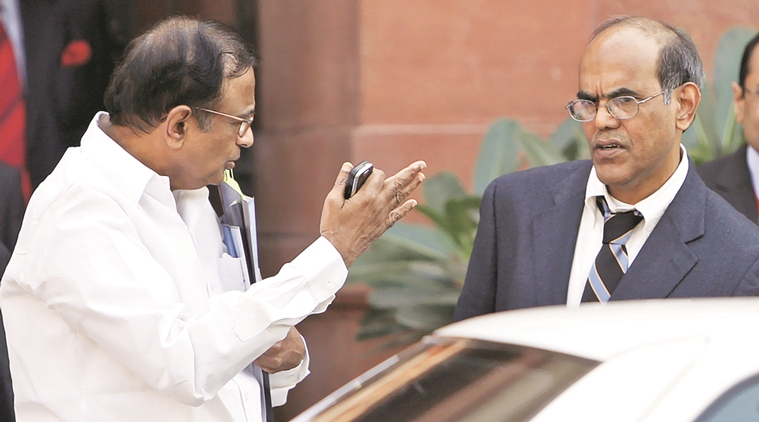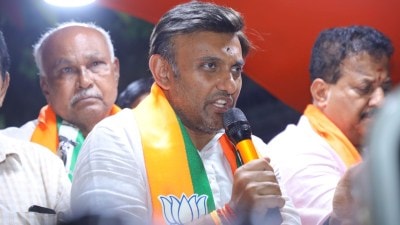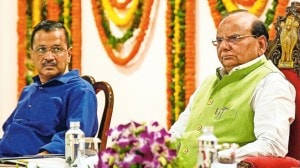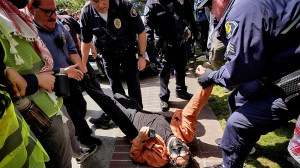- India
- International
Before Raghuram Rajan vs NDA, there was Duvvuri Subbarao vs UPA, too
Subbarao, who led the RBI through five turbulent years, says that not only was there pressure on him from P Chidambaram and Mukherjee to cut interest rates but his refusal to fall in line made him pay a price as well.
 Duvvuri Subbarao and Chidambaram.
Duvvuri Subbarao and Chidambaram.
ONE may have to wait for outgoing RBI Governor Raghuram Rajan’s memoirs to understand his relationship with the NDA but a new book by his predecessor reveals a not-so unfamiliar story — pressure during the UPA.
Duvvuri Subbarao, who led the RBI through five turbulent years 2008-13, says that not only was there pressure on him from Finance Ministers P Chidambaram and Pranab Mukherjee to cut interest rates but his refusal to fall in line made him pay a price as well.
In his book Who Moved My Interest Rate? (Penguin Viking), Subbarao writes: “Both Chidambaram and Pranab Mukherjee were piqued by the Reserve Bank’s tight interest rate policy on the ground that high interest rates were inhibiting investment and hurting growth.”
Rebutting Chidambaram’s claim that ‘on 8 out of 10 monetary policy statements or actions, the Government and the RBI will be, and in the past have been, on the same page’ (quoting from his August 1, 2015 column in The Indian Express, Monetary Policy Committee: Vote or Veto?), Subbarao writes: “The ballpark average that he cites — agreement eight out of ten times – may be his experience, but it certainly does not accord with me.”
[related-post]
Watch Video: What’s making news
Subbarao says that all through his tenure, the government was distinctly uncomfortable with the RBI raising interest rates and seemed convinced that monetary policy was choking growth. “The logic of why the Reserve Bank should compromise its judgment so as to become a cheerleader for the economy never appealed to me,” he writes.

The former governor also suggests Chidambaram broke a tacit agreement between the government and the RBI to keep such differences behind closed doors.
In October 2012, after he told Chidambaram of his decision to stay put on the policy rate, Chidambaram unveiled the government’s road map for fiscal adjustment just before the RBI policy meeting. Despite this, Subbarao did not budge since he had already front-loaded a rate cut (0.5 per cent) in April 2012.
Immediately after the RBI’s policy statement, Chidambaram said: “Growth is as much a concern as inflation. If the government has to walk alone to face the challenge of growth, we will walk alone.”
According to Subbarao, this “public rebuke” was a high-profile deviation from the standard practice of the finance minister to issue a statement endorsing the Reserve Bank’s monetary policy decision in the media.
And less than a week when they were together in Mexico at a dinner hosted by the Indian ambassador, Chidambaram “greeted everyone, but pointedly ignored me all through the evening, leaving me with an uncomfortable feeling”, Subbarao says in the book’s chapter titled “Walking Alone”.
The former RBI Governor goes to say, “There is a price to pay, of course, for not falling in line.” In his case, he says, the government showed its displeasure by going against Subbarao’s recommendations in the appointment of two deputy governors, Usha Thorat during Pranab Mukherjee’s tenure, and Subir Gokarn during Chidambaram’s time.
Subbarao assumed office on September 5, 2008, and within a fortnight had to tackle with the aftermath of the Lehman Brothers collapse that plunged the global financial sector into what he calls a “near-death experience”. But a little over a month in mid-October, Subbarao had his first skirmish with Chidambaram when he set up a committee on liquidity management under then Finance Secretary Arun Ramanathan.
“Chidambaram had clearly overstepped into the RBI turf as liquidity management is a quintessential central bank function. Not only did he not consult me but he had not even informed me of this before the notification was issued,” Subbarao writes, and adds, “Little did I know that this set the tone for what would be an uneasy relationship between us in the last year of my term.”
Apr 27: Latest News
- 01
- 02
- 03
- 04
- 05








































